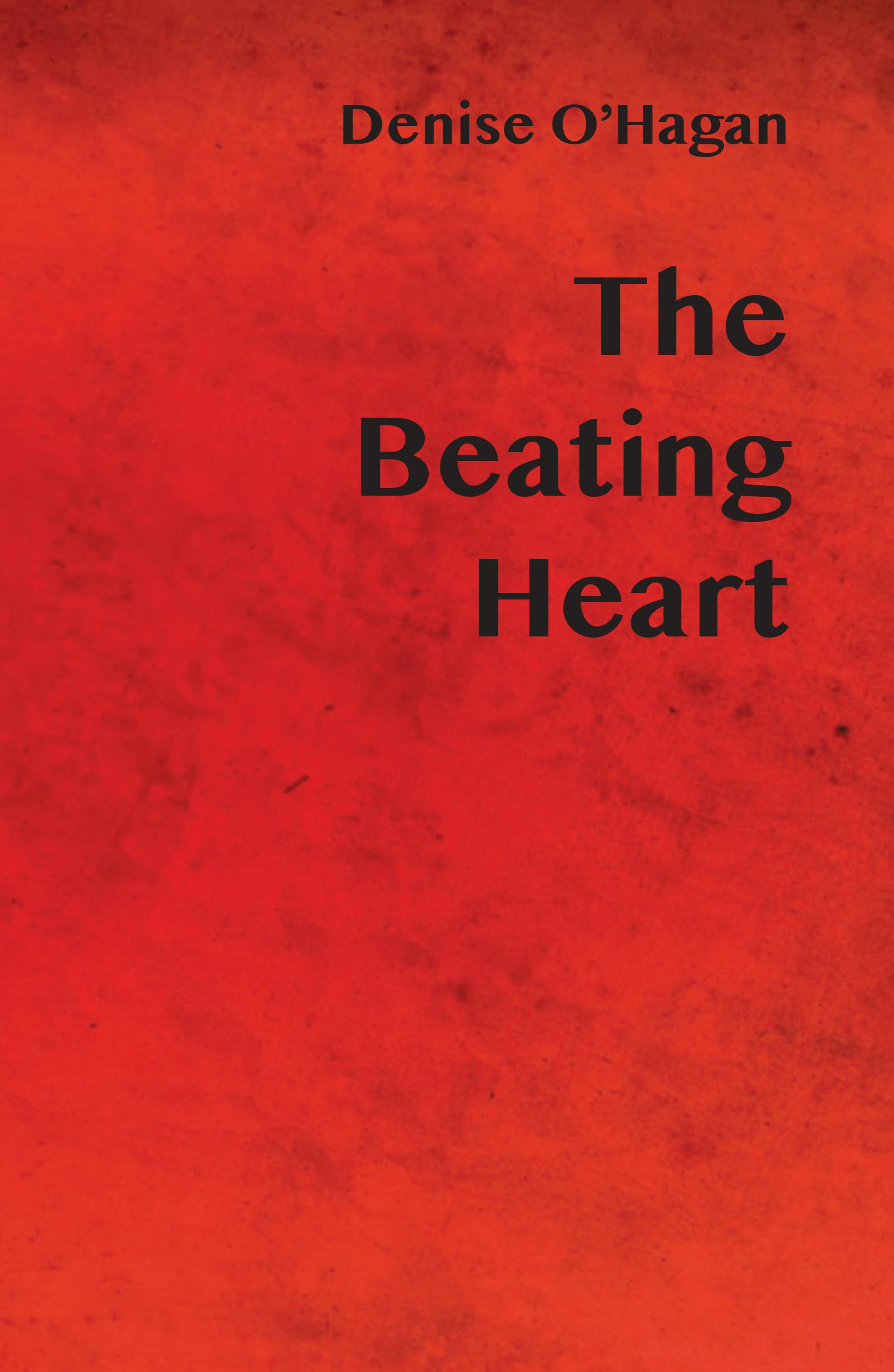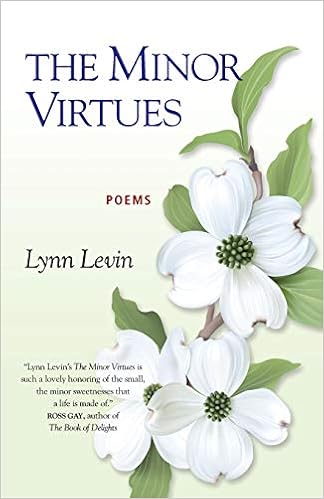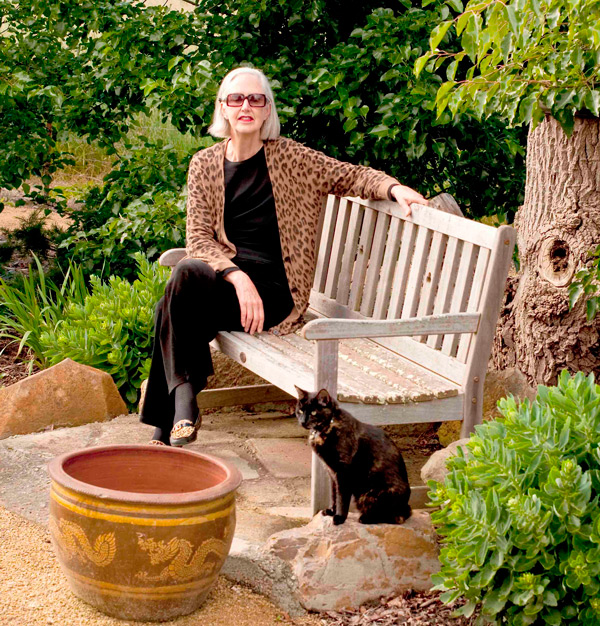 O’Hagan does a beautiful job of describing the Italy of her childhood—the buildings, fountains, news items, a walk with her parents, conversations, cobblestones, the loss of a friend, or a roadside drive. There’s a sense that every detail is both intensely private, and absolutely important—a universal artefact that must be shared with the reader
O’Hagan does a beautiful job of describing the Italy of her childhood—the buildings, fountains, news items, a walk with her parents, conversations, cobblestones, the loss of a friend, or a roadside drive. There’s a sense that every detail is both intensely private, and absolutely important—a universal artefact that must be shared with the reader
A review of The Minor Virtues by Lynn Levin
 I don’t usually consider virtue amusing, but Lynn Levin’s new book of poetry The Minor Virtues had me laughing out loud. In a reading I attended, she called it her most cheerful book yet. She said she wanted to focus on not the big virtues like patience and temperance, but what she called the minor virtues that she elicited from paying attention to small moments and looking in deeply.
I don’t usually consider virtue amusing, but Lynn Levin’s new book of poetry The Minor Virtues had me laughing out loud. In a reading I attended, she called it her most cheerful book yet. She said she wanted to focus on not the big virtues like patience and temperance, but what she called the minor virtues that she elicited from paying attention to small moments and looking in deeply.
A review of A Man Called Ove By Fredrick Backman
 An incredibly moving novel, I am glad I read this book as a ‘gateway’ book to other adult books. I would suggest this is a book for young adults (15-18) and adults, as some themes can be quite intense for younger readers. Overall, a beautiful story with strong messages and an emotional ending – you’ll need the tissue box for this one!
An incredibly moving novel, I am glad I read this book as a ‘gateway’ book to other adult books. I would suggest this is a book for young adults (15-18) and adults, as some themes can be quite intense for younger readers. Overall, a beautiful story with strong messages and an emotional ending – you’ll need the tissue box for this one!
A review of Sea Glass Catastrophe by Quinn Rennerfeldt
There is music in Sea Glass Catastrophe words flow sometimes in a precipitous way, others with measured and a toned-down cadence with a sprinkle of sharp notes. In this chest of surprises we read poems that tell us of pain and hunger, joy and search, sinning and redemption. Some of the poems are mirrors with many faces, crystals that are coloured by Quinn’s creativity.
An interview with Fred Stuvek
 The author of Don’t F*** This Up! talks about his new book and its confronting title, on the dimensions of success, his core ideas, advice for job seekers, and more.
The author of Don’t F*** This Up! talks about his new book and its confronting title, on the dimensions of success, his core ideas, advice for job seekers, and more.
A review of Convenient Amnesia by Donald Vincent
 This collection by Donald Vincent deserves to be read not just for his lyrical lines but because his poems bring emotional life to a cultural crisis. Books of poetry like Vincent’s convey social and personal histories that affirm and remind, that interrupt tendencies of convenient amnesia.
This collection by Donald Vincent deserves to be read not just for his lyrical lines but because his poems bring emotional life to a cultural crisis. Books of poetry like Vincent’s convey social and personal histories that affirm and remind, that interrupt tendencies of convenient amnesia.
A review of What Kind of Man by Tony Gloeggler
 These poems are all very New York-y, another source of the gritty joie de vivre at the heart of his outlook. Having been born in New York and lived his entire life in New York, this is natural, but it informs Gloeggler’s attitude, and there’s so much New York atmosphere, from scenes, neighborhoods, personalities, institutions, the public transportation.
These poems are all very New York-y, another source of the gritty joie de vivre at the heart of his outlook. Having been born in New York and lived his entire life in New York, this is natural, but it informs Gloeggler’s attitude, and there’s so much New York atmosphere, from scenes, neighborhoods, personalities, institutions, the public transportation.
A review of Imperfect by Lee Kofman
 I’d be lying if I said I didn’t spend time Googling these people, or that I wasn’t fascinated by the whole notion of what constitutes beauty – and the way in which it’s judged. Kofman doesn’t pretend to have an answer—Imperfect is not a didactic book, and nor does it present a thesis that beauty is more than ‘skin deep’ and that judgement in any form is bad–we cannot help gazing at the beautiful or indeed the shocking. What the book does show however, is that these are complex and important questions to raise and that familiarity and reflectiveness are a means to better understanding who we are.
I’d be lying if I said I didn’t spend time Googling these people, or that I wasn’t fascinated by the whole notion of what constitutes beauty – and the way in which it’s judged. Kofman doesn’t pretend to have an answer—Imperfect is not a didactic book, and nor does it present a thesis that beauty is more than ‘skin deep’ and that judgement in any form is bad–we cannot help gazing at the beautiful or indeed the shocking. What the book does show however, is that these are complex and important questions to raise and that familiarity and reflectiveness are a means to better understanding who we are.
An interview with Sally Bird
 Sally Bird runs Calidris Literary Agency. In this in-depth interview, she talks about the changing role of the literary agent, the repercussions of Covid-19 on the book world: authors, publishers, and readers, post-covid predictions, advice for authors, and lots more.
Sally Bird runs Calidris Literary Agency. In this in-depth interview, she talks about the changing role of the literary agent, the repercussions of Covid-19 on the book world: authors, publishers, and readers, post-covid predictions, advice for authors, and lots more.
Remembering Cats Eye
 Margaret Atwood’s Cat’s Eye was shortlisted for the Booker prize in 1989. I haven’t read The Remains of the Day, the book that won, but it doesn’t matter. Cat’s Eye was robbed. Every sentence in the novel’s 498 pages serves the whole beating heart of it. No word is superfluous. Each one is a mini portal, transporting us and the main character, Elaine, back into memories without warning, exactly as Atwood intended.
Margaret Atwood’s Cat’s Eye was shortlisted for the Booker prize in 1989. I haven’t read The Remains of the Day, the book that won, but it doesn’t matter. Cat’s Eye was robbed. Every sentence in the novel’s 498 pages serves the whole beating heart of it. No word is superfluous. Each one is a mini portal, transporting us and the main character, Elaine, back into memories without warning, exactly as Atwood intended.